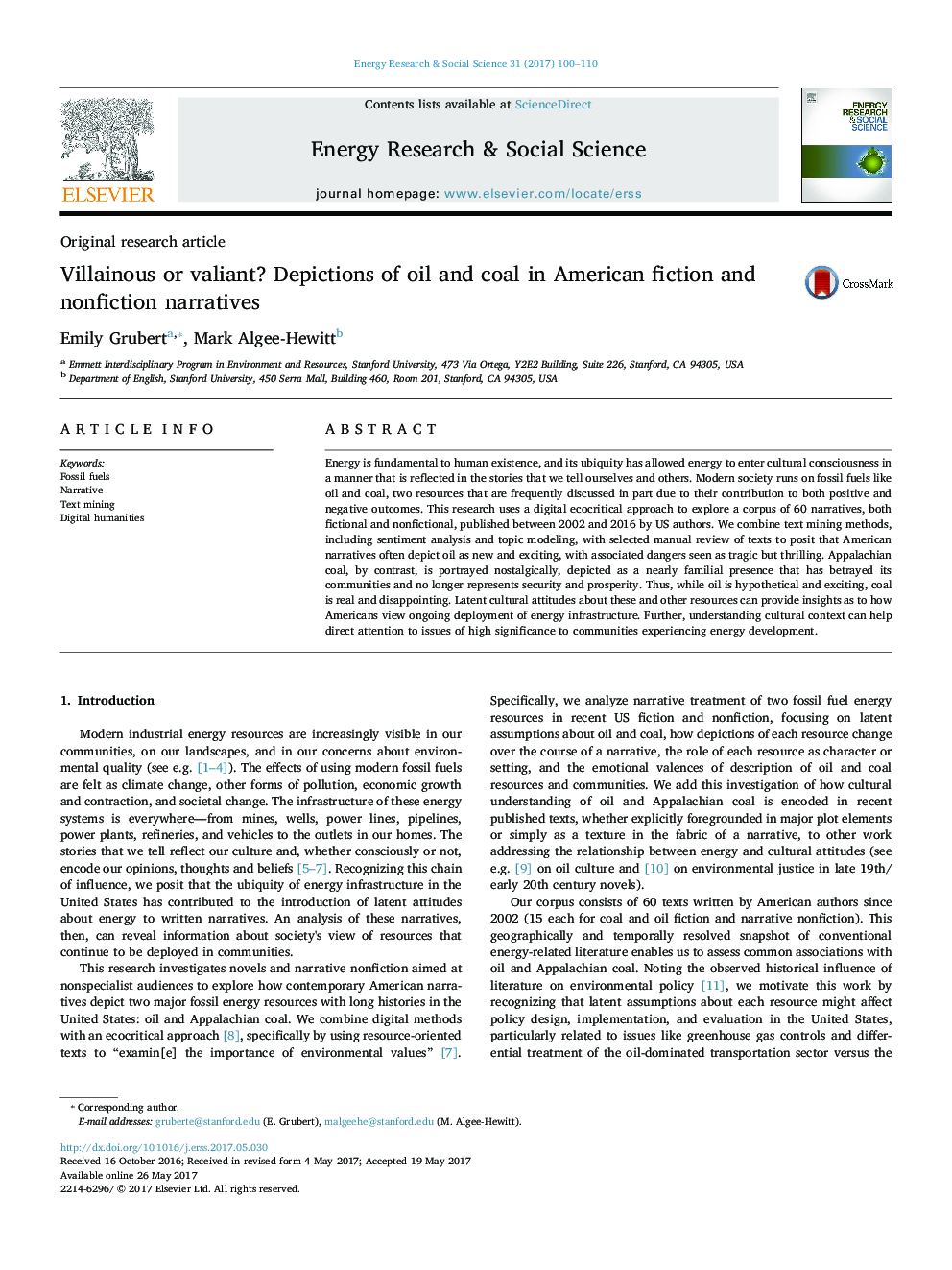| Article ID | Journal | Published Year | Pages | File Type |
|---|---|---|---|---|
| 6463839 | Energy Research & Social Science | 2017 | 11 Pages |
Energy is fundamental to human existence, and its ubiquity has allowed energy to enter cultural consciousness in a manner that is reflected in the stories that we tell ourselves and others. Modern society runs on fossil fuels like oil and coal, two resources that are frequently discussed in part due to their contribution to both positive and negative outcomes. This research uses a digital ecocritical approach to explore a corpus of 60 narratives, both fictional and nonfictional, published between 2002 and 2016 by US authors. We combine text mining methods, including sentiment analysis and topic modeling, with selected manual review of texts to posit that American narratives often depict oil as new and exciting, with associated dangers seen as tragic but thrilling. Appalachian coal, by contrast, is portrayed nostalgically, depicted as a nearly familial presence that has betrayed its communities and no longer represents security and prosperity. Thus, while oil is hypothetical and exciting, coal is real and disappointing. Latent cultural attitudes about these and other resources can provide insights as to how Americans view ongoing deployment of energy infrastructure. Further, understanding cultural context can help direct attention to issues of high significance to communities experiencing energy development.
